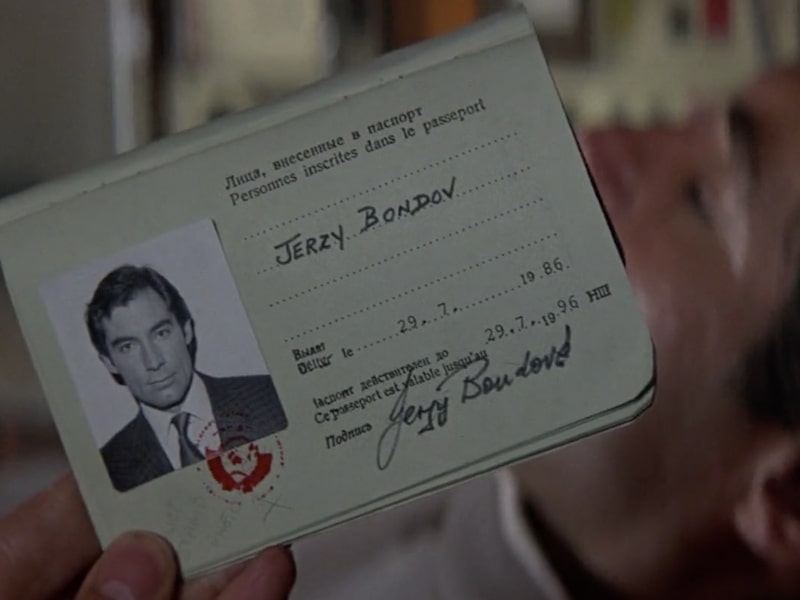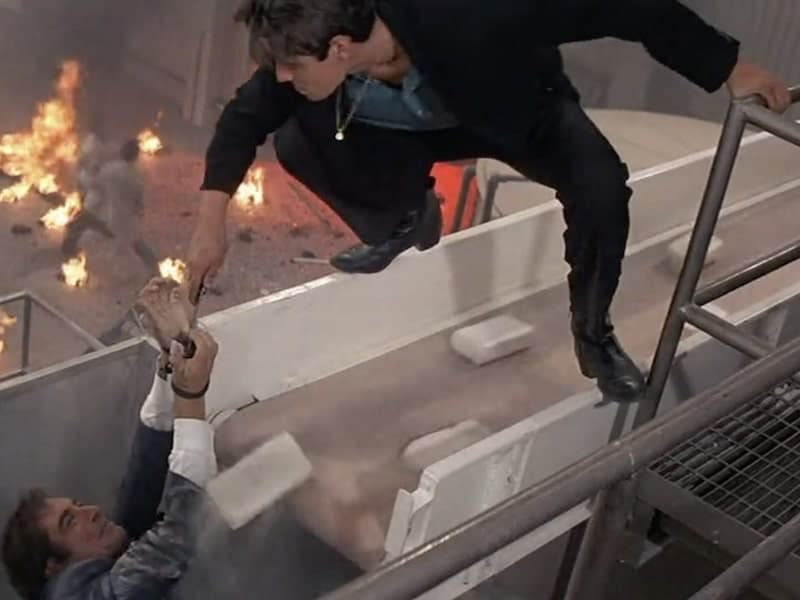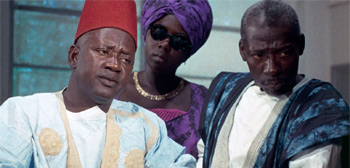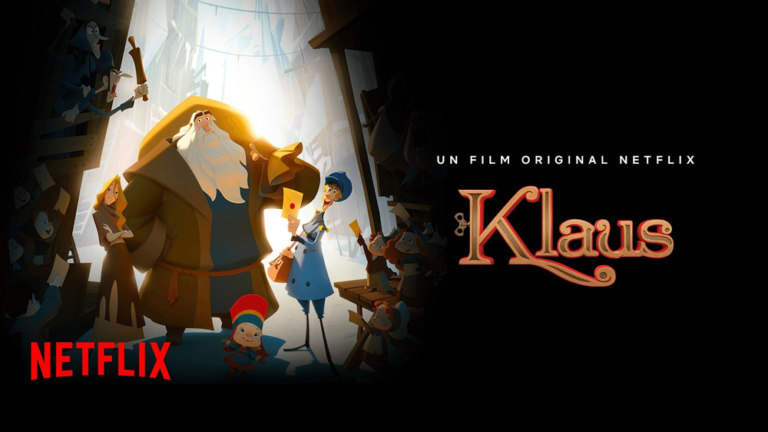A James Bond Under The Radar: Reflections on the Timothy Dalton Era
The name’s Bond. Bondathon. With twenty-four official James Bond films to conquer before No Time To Die hits theaters, Bond fan Anna Swanson and Bond newbie Meg Shields are diving deep on 007. Martinis shaken and beluga caviar in hand, the Double Take duo are making their way through the Bond corpus by era, so hang up your hats and pay attention. This entry explores the Timothy Dalton era.
After our deep dives on Connery, Lazenby, and Moore, we’ve reached a contentious point in the James Bond franchise: what to make of Timothy Dalton? He’s the most overlooked Bond and, arguably, the most underrated.
Despite his limited run of only two films, Dalton made quite an impact on our viewing and solidified that while everyone won’t love the same Bond, there is a Bond for everyone. After our 007 double feature, we sat down to unpack why Dalton flies under the radar as a fan favorite and the debt the franchise owes these films. But first, let’s remind ourselves of what went down in Dalton’s brief years as 007:
- In The Living Daylights (1987), Bond assists in the defection of General Georgi Koskov. Koskov informs MI6 that the KGB is run by power-hungry General Pushkin, who has revived an old program of Western spy assassinations. Shortly after, Koskov is recaptured and Bond begins to suspect that the whole affair was staged. Accompanied by Koskov’s starry-eyed cellist girlfriend Kara Milovy, Bond trapeses across Czechoslovakia, Tangier, and Afganistan to figure who the real baddies are.
- License to Kill (1989) begins with the wedding of who else but Bond’s CIA bestie, Felix Leiter! However, a pre-ceremony drug bust sets off a chain of events that leads to tragedy. Agent 007 responds by going rogue in the name of revenge.

What did you expect? What surprised you?
Bond Beginner:
When we started this project, one of my first questions to Anna was “who’s your favorite?” And Anna, Lucille Bluth-like, replied, “I love all the Bonds, but I do not care for Dalton.” This checked out with what I’d picked up through pop-culture, namely that Dalton was a lesser Bond, or at the very least a marginal one. I’d met plenty of vocal Connery and Moore fans but never someone who stumped for Dalton. In short: I was prepared to be underwhelmed.
So when Anna and I finally sat down to watch The Living Daylights, I was livid. Because this Bond rips and I will see all of you who led me to believe otherwise in court. You’re all entitled to an opinion but if you think Dalton’s Bond is anything less than the best, you shouldn’t be allowed to operate heavy machinery. Dalton-Bond can shoot straight without blinking, but like the best heroes, he’s compromised. And not in the way that’s become typical of darker action protagonists.
Dalton’s Bond doesn’t have a chip on his shoulder or a tortured past. He’s not damaged goods or anti-authority. Oh no, Dalton’s Achilles’ heel is that he has a lot of feelings. This 007 wears his emotions on his black, tactical sleeve and cares about people to a fault. He grins like a goon and has the emotional composure of a toddler. If there is a Bond for everyone, this sassy goth is mine. I wasn’t ready for it, but here I am: a vocal member of the “Dalton is the Best Bond, actually” party.
Bond Veteran:
Alright, look, I don’t dislike Dalton. His era just doesn’t do it for me like Moore or Brosnan’s. More than anything, I find it unfortunate that Dalton got sandwiched between them. I think he’s a great actor who probably got the short end of the stick. It doesn’t help that I’ve found the consensus to be that The Living Daylights is his better movie and, frankly, it bores me. License to Kill, on the other hand, is a hell of a lot of fun.
But no matter how personal preference shakes out, the two films are very different. So I’ve always had a hard time nailing down exactly who Dalton’s Bond is. It’s not his fault; he got caught in a weird period of history, what with Brosnan being pulled out at the last minute because of his Remington Steele obligations and legal disputes preventing Dalton from getting a third film. But it means that as a fan, I don’t have a firm grasp on this Bond.
Of course, that also means I can approach these films without the blinding love I have for other eras, ones that are probably objectively worse but that I adore for their ridiculousness (read: Moore). This time around, I was surprised at how much License to Kill helped me resolve some of my issues with the recent Daniel Craig films. I love how Dalton goes rogue, I love his motivations for personal revenge, and I love his unwavering commitment to a mission he gave himself. It makes sense for the character, and it makes the film that much more exciting.
License to Kill works because Bond going rogue was new at this point in the franchise. It still feels fresh and lively. It didn’t confuse personal stakes with the need to be gritty and defeatist. The last few Craig films retread the same revenge plots, and I’ve grown tired of them. Dalton might not be my personal favorite, but anyone who considers Craig to be the best Bond should be required to recognize that his era is both indebted to Dalton and could stand to learn a thing or two from this Bond.

Do these films hold up?
Bond Beginner:
They do, as much as any espionage thriller made in a specific era does. Gun to my head, I’m sure License to Kill will outlast The Living Daylights simply by virtue of being less geopolitical and more in line with a certain nostalgia for late-’80s excess. But at the end of the day, both of these films play well in 2020. The action is captivating, the emotional stakes are sound, and none of the trappings of the era cross the line into distraction.
Bond Veteran:
Yes. Probably better than most of the movies. If anything, the reason they feel like weird entries in the Bond franchise is that they do hold up well. As Meg has pointed out, License to Kill‘s brand of excess is probably the thing that endears it to me. The Living Daylights is fairly reserved when it comes to overblown action spectacle, and I can see areas where it overlaps with current espionage thrillers — I’m looking at you, Mission: Impossible Rogue Nation‘s opera scene.






